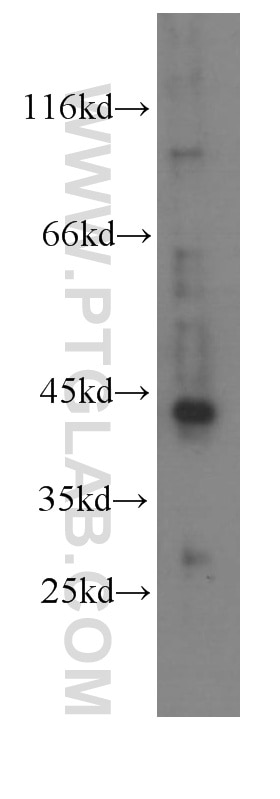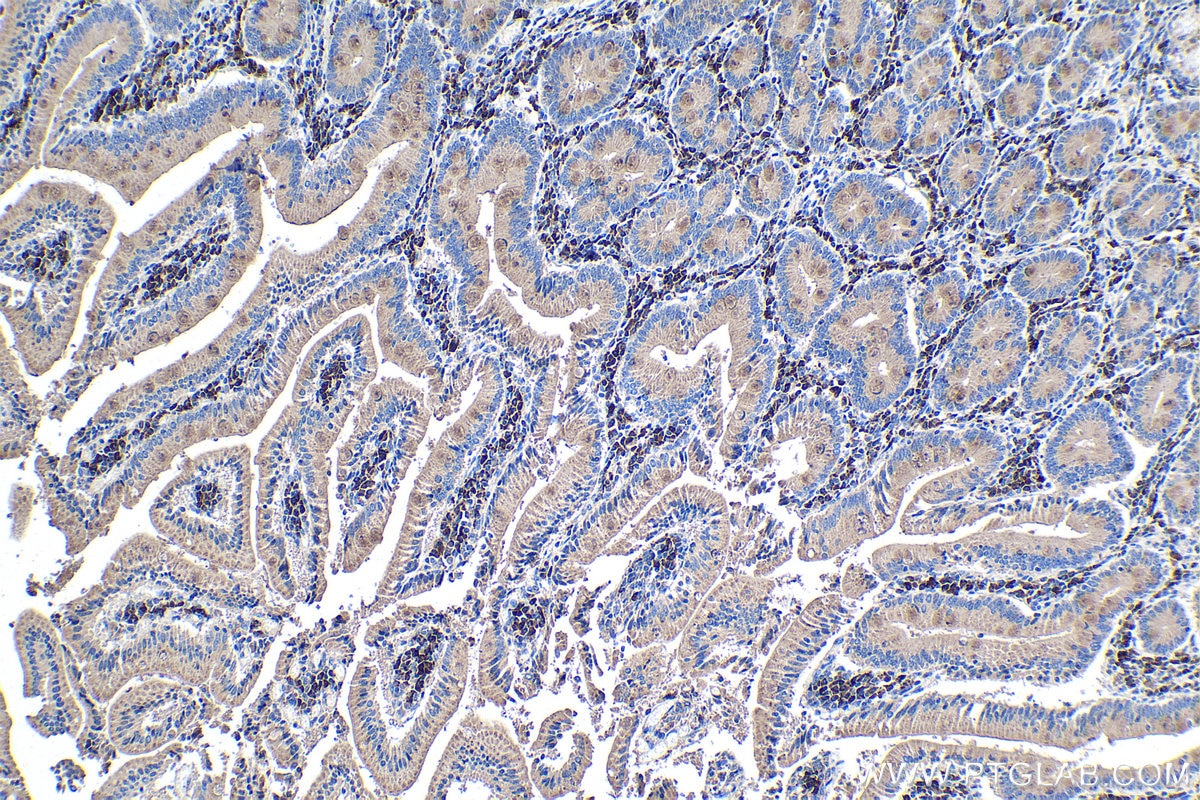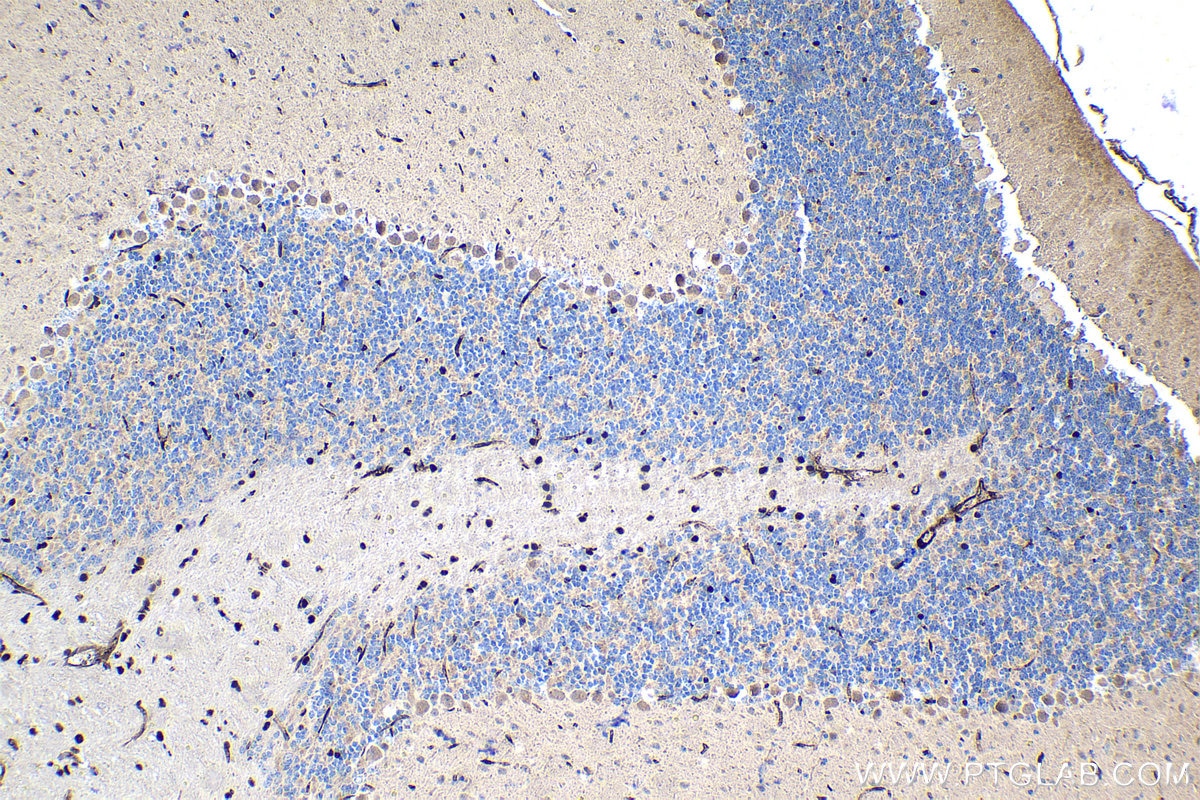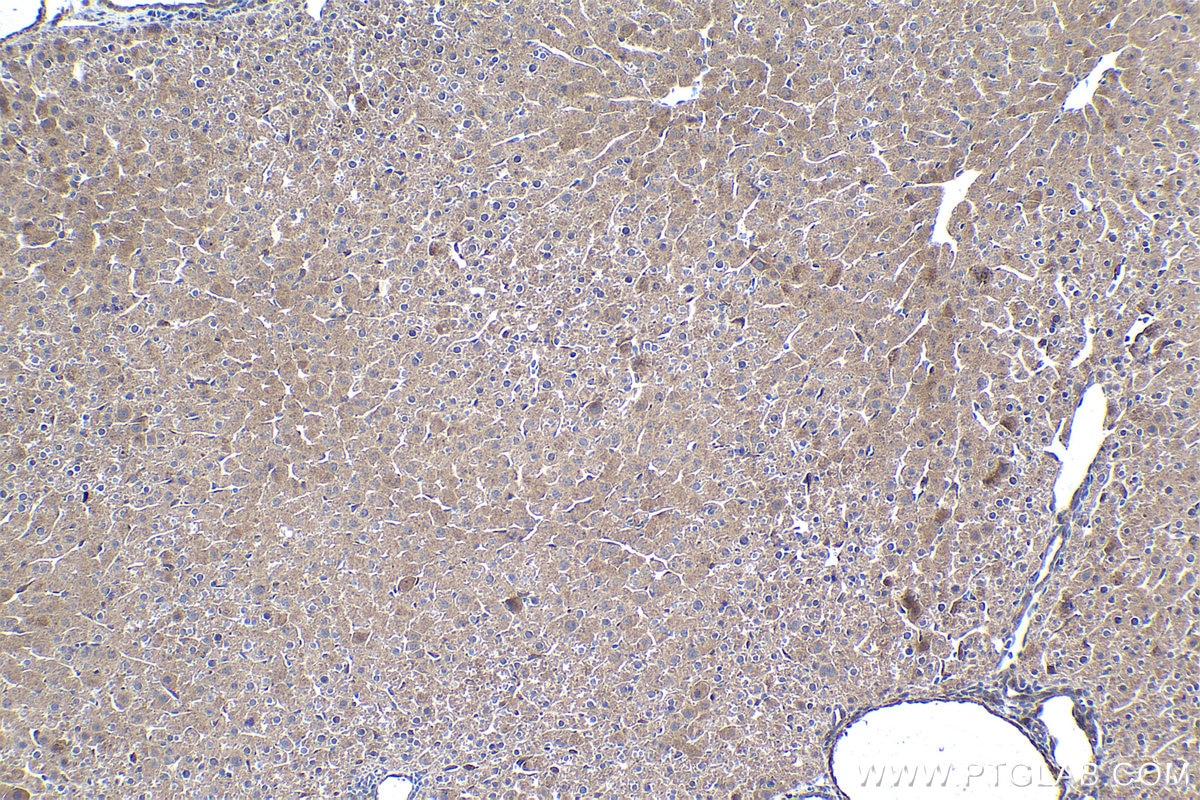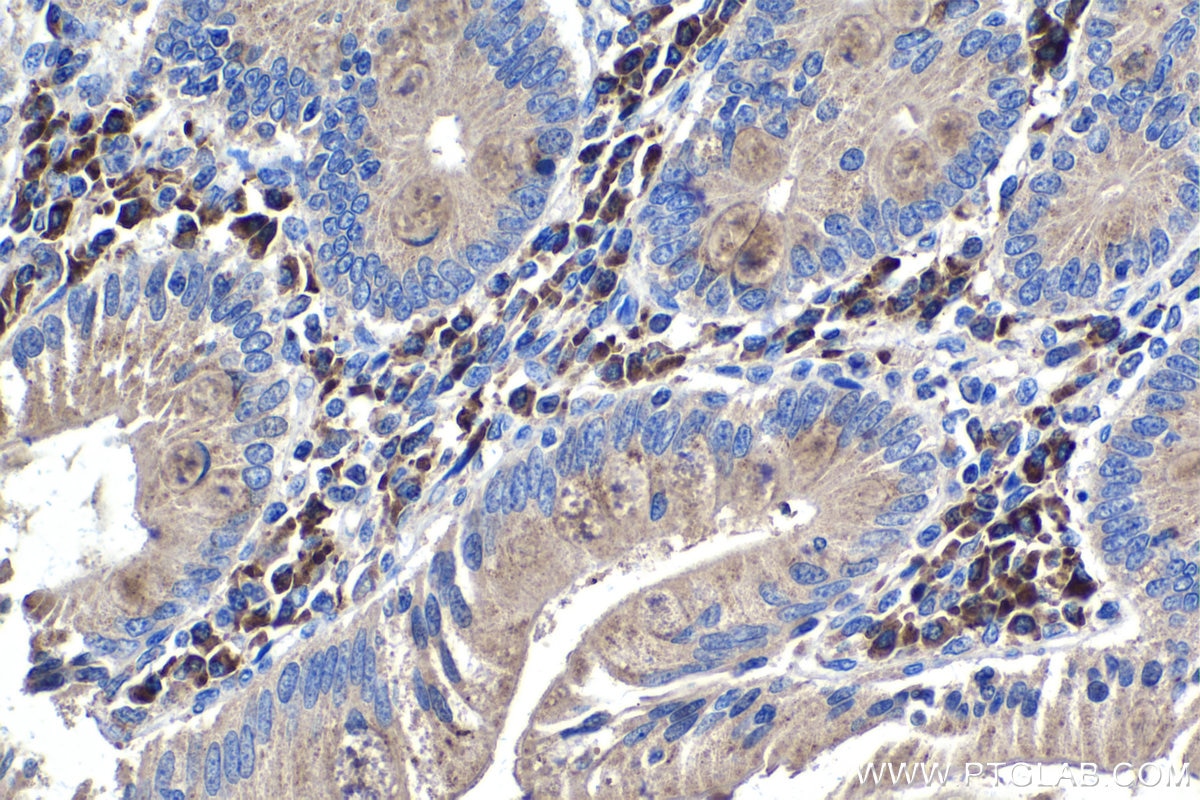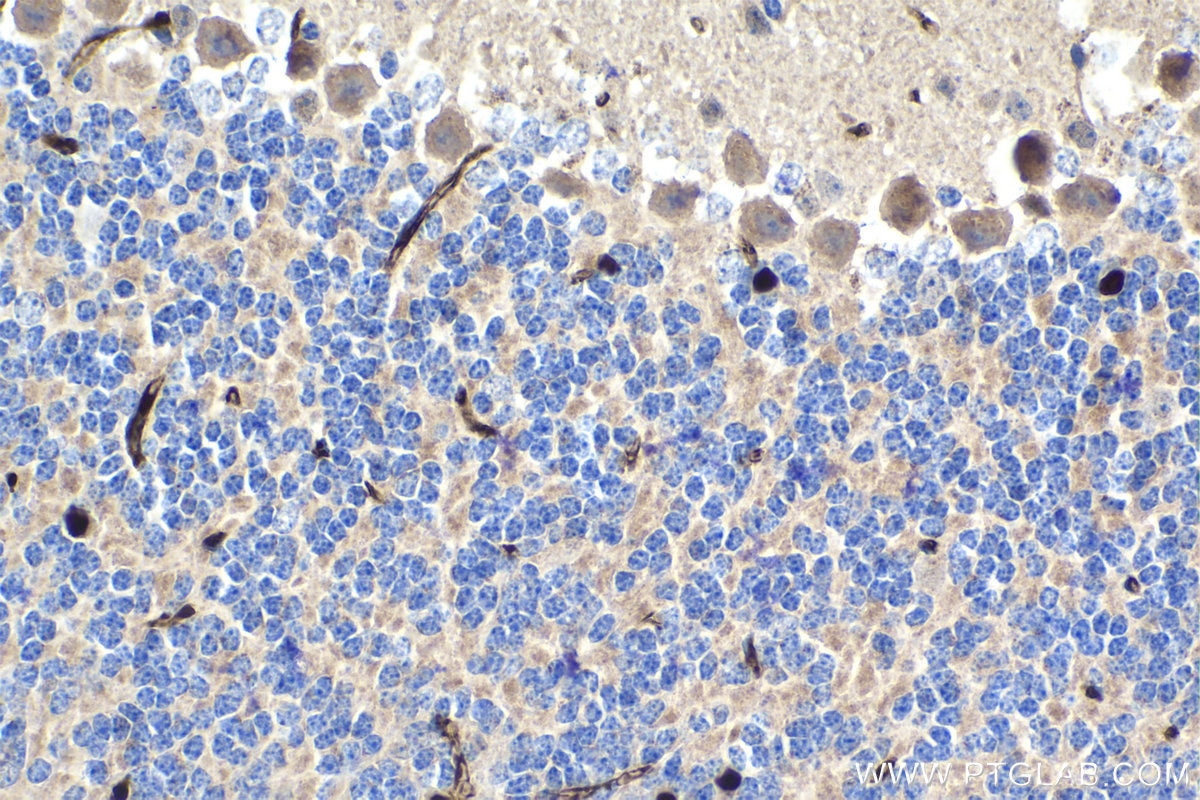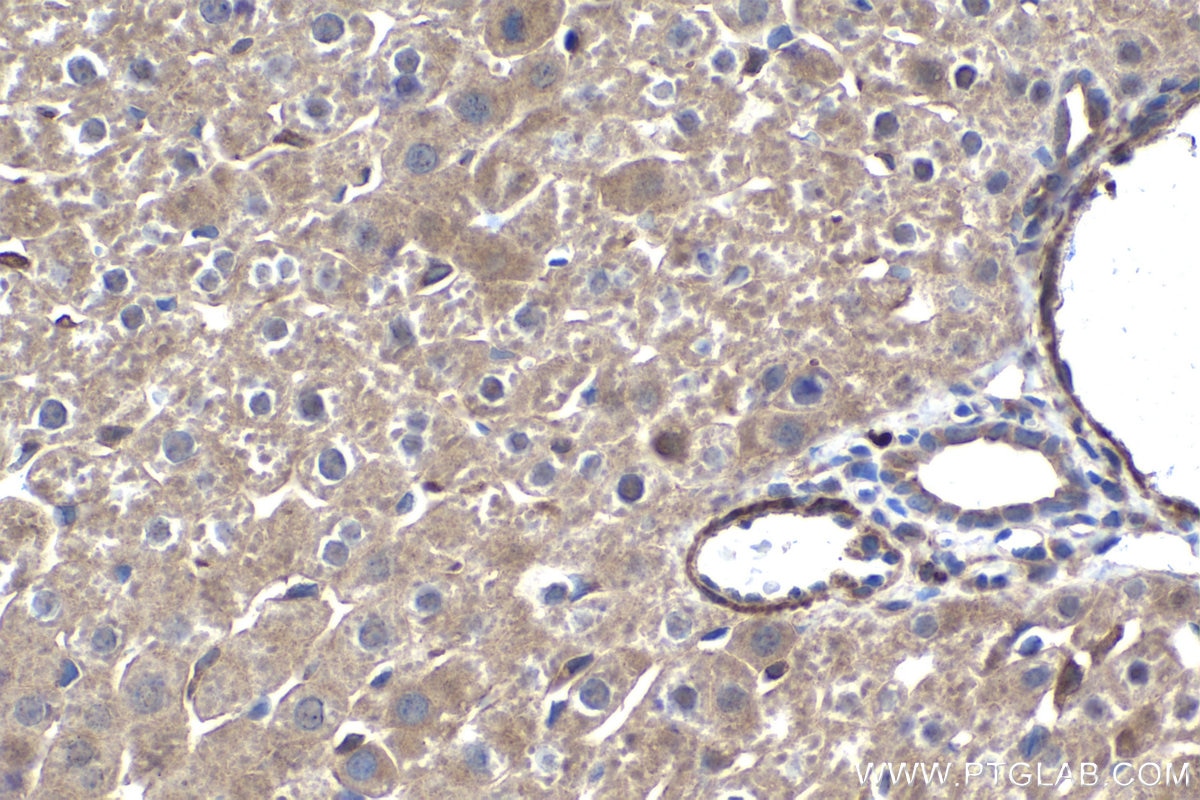Anticorps Monoclonal anti-RXRA
RXRA Monoclonal Antibody for WB, IHC, Indirect ELISA
Hôte / Isotype
Mouse / IgG1
Réactivité testée
Humain, souris
Applications
WB, IHC, Indirect ELISA
Conjugaison
Non conjugué
CloneNo.
4H6C4
N° de cat : 60198-1-PBS
Synonymes
Galerie de données de validation
Informations sur le produit
60198-1-PBS cible RXRA dans les applications de WB, IHC, Indirect ELISA et montre une réactivité avec des échantillons Humain, souris
| Réactivité | Humain, souris |
| Hôte / Isotype | Mouse / IgG1 |
| Clonalité | Monoclonal |
| Type | Anticorps |
| Immunogène | RXRA Protéine recombinante Ag0987 |
| Nom complet | retinoid X receptor, alpha |
| Masse moléculaire calculée | 462 aa, 51 kDa |
| Poids moléculaire observé | 44 kDa |
| Numéro d’acquisition GenBank | BC007925 |
| Symbole du gène | RXRA |
| Identification du gène (NCBI) | 6256 |
| Conjugaison | Non conjugué |
| Forme | Liquide |
| Méthode de purification | Purification par protéine G |
| Tampon de stockage | PBS only |
| Conditions de stockage | Store at -80°C. 20ul contiennent 0,1% de BSA. |
Informations générales
Retinoid X receptor alpha (RXRA). Retinoic acid receptors bind as heterodimers to their target response elements in response to their ligands, all-trans or 9-cis retinoic acid, and regulate gene expression in various biological processes. The RAR/RXR heterodimers bind to the retinoic acid response elements (RARE) composed of tandem 5'-AGGTCA-3' sites known as DR1-DR5. The high-affinity ligand for RXRs is 9-cis retinoic acid. RXRA serves as a common heterodimeric partner for a number of nuclear receptors. The RXR/RAR heterodimers bind to the retinoic acid response elements (RARE) composed of tandem 5'-AGGTCA-3' sites known as DR1-DR5. In the absence of a ligand, the RXR-RAR heterodimers associate with a multiprotein complex containing transcription corepressors that induce histone acetylation, chromatin condensation, and transcriptional suppression. On ligand binding, the corepressors dissociate from the receptors and associate with the coactivators leading to transcriptional activation. The RXRA/PPARA heterodimer is required for PPARA transcriptional activity on fatty acid oxidation genes such as ACOX1 and the P450 system genes. This antibody is a rabbit polyclonal antibody raised against the 350 AA of human RXRA C-terminal. RXRA is highly expressed in the liver, and also expressed in the lungs, kidneys, and heart. It can recognize the the mature 54 kDa RXRA and the truncated 44 kD RXRA (PMID: 20541701).
